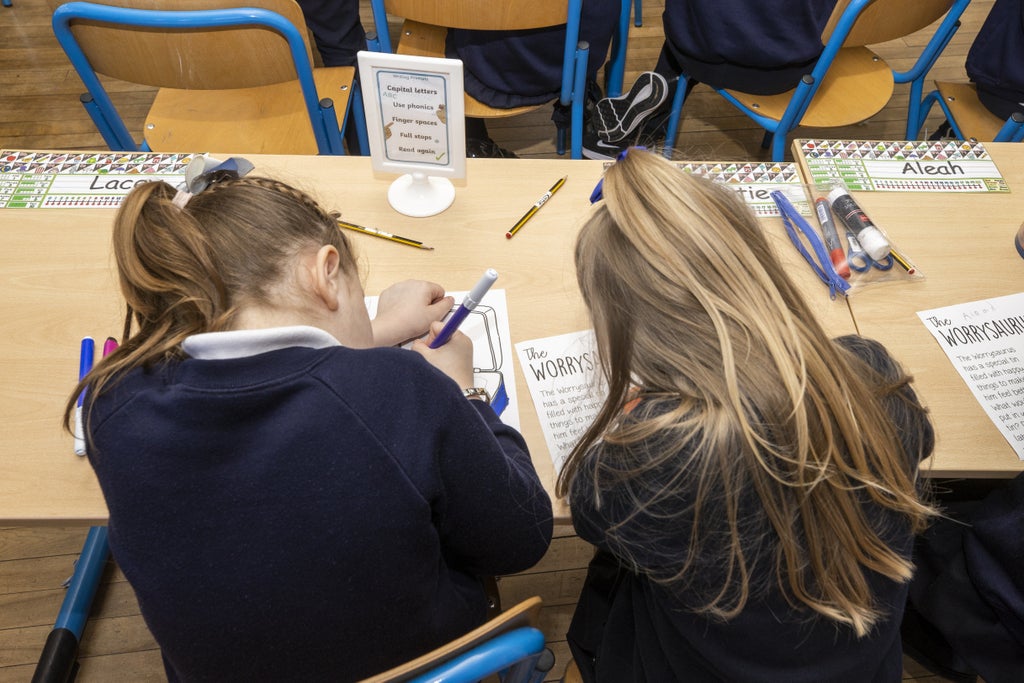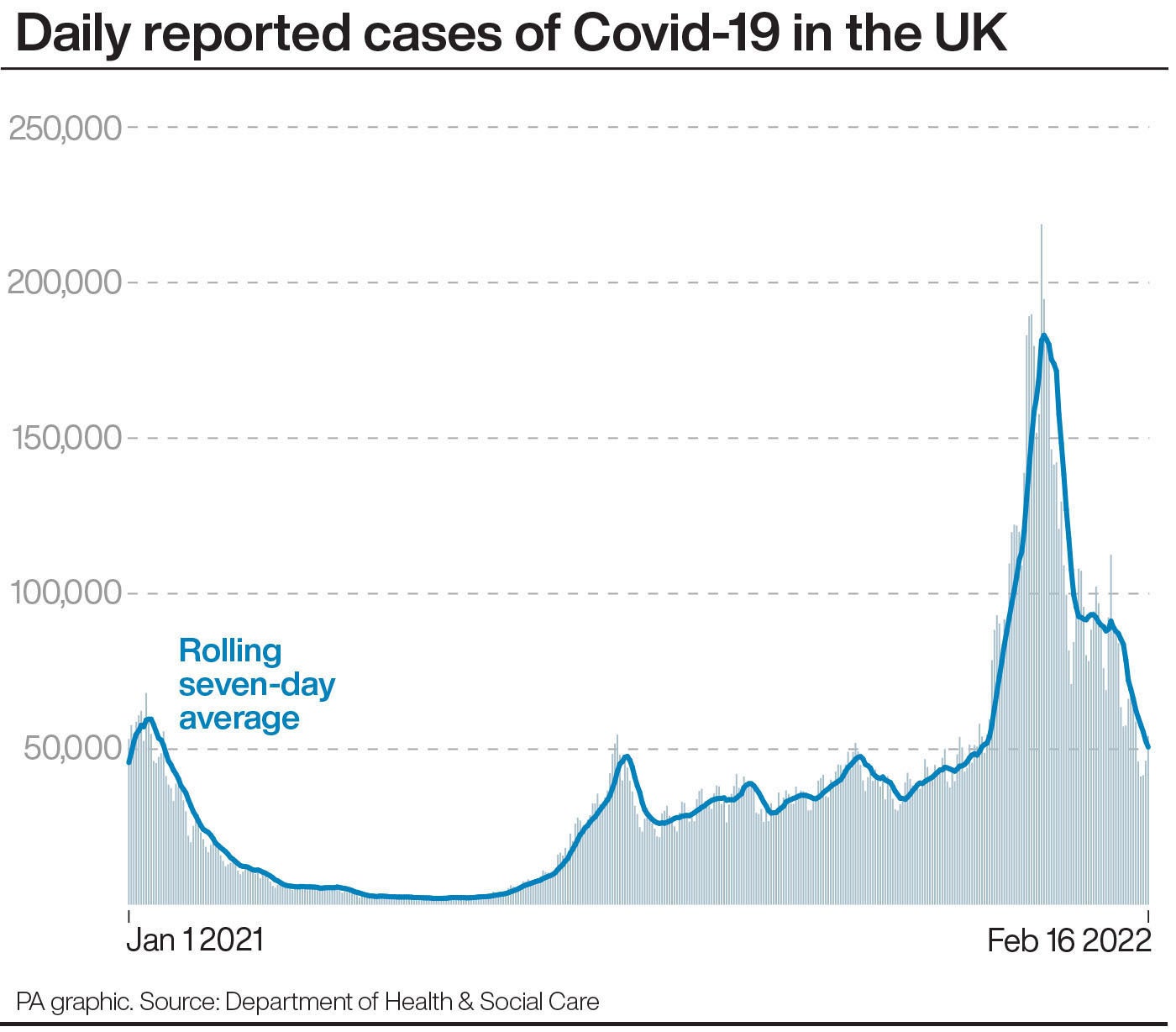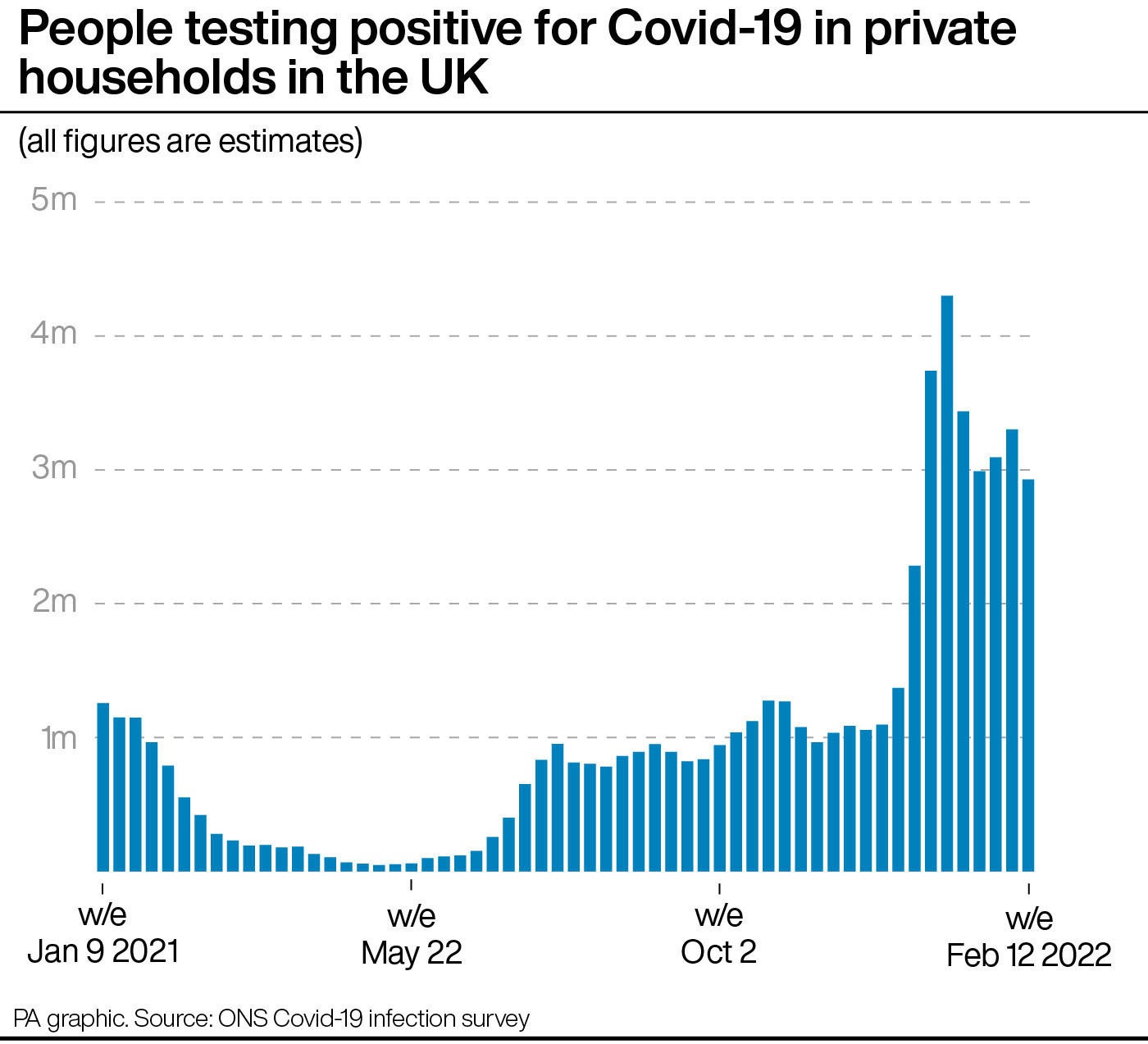
Healthy children aged five to 11 across the UK are to be offered a Covid-19 vaccine.
Here are the answers to some of the key questions about jabs for younger children.
– What is the latest?
The Joint Committee on Vaccination and Immunisation (JCVI) has advised that healthy children aged five to 11 should be offered a Covid-19 vaccine on a “non-urgent” basis.
The recommendation has been accepted by ministers across the UK and jabs are expected to be rolled out from April in England.
– I thought jabs were approved for use in five to 11-year-olds in December?
The Medicines and Healthcare products Regulatory Agency (MHRA) announced in December that a special “paediatric formulation” of the Pfizer/BioNtech Covid-19 vaccine was safe for use among children aged five to 11.
The JCVI then said that the vaccine could be offered to “at risk” children in this age group, but reserved its decision on wider use among healthy children in this age bracket until now.
– Can you tell me more about this “paediatric formulation”?
Children aged five to 11 will be offered a much lower dose of the vaccine – lower than that offered to adults or children aged 12 and over.

They will be offered a 10 micrograms dose compared with 30 micrograms.
Children will be given two doses, 12 weeks apart.
– Are there any side effects?
Both data from the clinical trials and real-world experience shows that younger children are less likely to report side effects compared to children aged 12 and over and young adults.
The MHRA has also been monitoring whether there have been side effects among at-risk children who are already receiving the jab.
It said the “overwhelming majority” of side effects reported were mild and “self-resolving” such as fever, headache or sore arms.
A JCVI official said severe adverse reactions were “extremely, extremely rare”.
Officials examined lots of data, including information from the US where millions of children aged five to 11 have been vaccinated. The jab has also been on offer to this age group in a number of countries around the world including Ireland, Canada and Israel.
One MHRA official said that parents could be reassured that “this is a very safe vaccine”.
– Are children not at low risk from Covid?
Yes, the vast majority of children are at low risk from Covid-19. In fact it is estimated that 85% of children in this age group have already had Covid, many with mild or no symptoms at all.
But a small number are at serious risk of severe illness requiring hospital admission.
The JCVI said that offering vaccines to this age group would “protect this very small number of children from serious illness and hospitalisation” in the event of a future wave of disease.
– Did the JCVI examine school absences?
Yes, it was a tricky debate. In the US some 8% to 10% of children took time off school after having a jab due to mild side effects but on the other hand, vaccination could prevent some infections and therefore prevent some children needing to take time off school.
The JCVI concluded that the effect of vaccination on the disruption to education was “indeterminate”.
– I am still on the fence, should I get the vaccine for my child?
The programme has been called “non-urgent” and officials are keen for parents and carers, as well as children, to be given as much information as possible about the vaccine.

They have acknowledged that it will take some parents time to come to the decision and stressed there would still be an offer of vaccination as children age.
– Where will children be given jabs?
It has not yet been announced where children will be vaccinated but it is now up to the NHS to plan how this will work operationally.
At-risk children aged five to 11 have been able to get vaccinated at their GP surgeries.
– How many children will be offered the jab?
There are an estimated 5.8 million five to 11-year-olds in the UK.
Some of these will have already been offered the chance to have a vaccine if they are in vulnerable groups.







